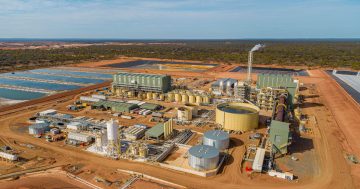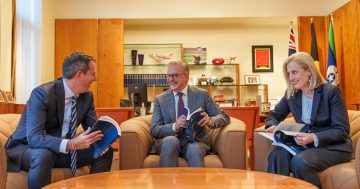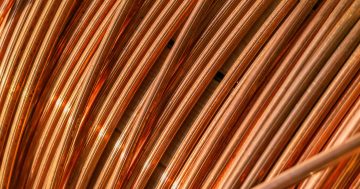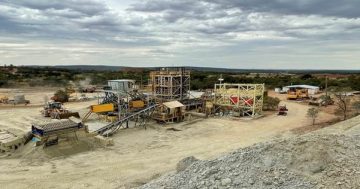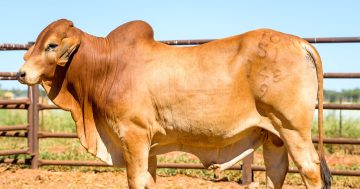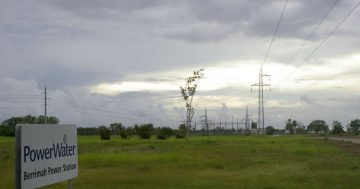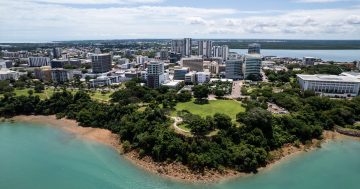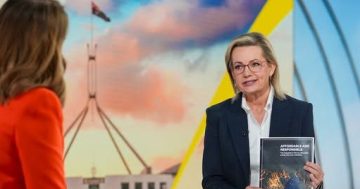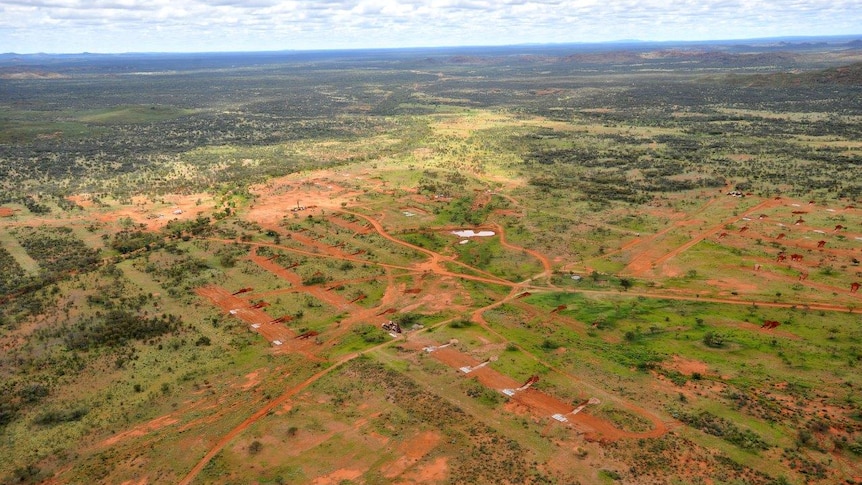
Northern Territory Mining Minister Mark Monaghan said the project capitalises on one of the largest deposits of critical minerals in the world. Photo: Arafura Resources Limited.
The Federal Government has committed up to $840 million for the nation’s first rare earths mine and refinery, located 125 km northwest of Alice Springs and set to be operated by Gina Rinehart-backed company Arafura.
A core focus of the Nolans project is supplying around four per cent of the world’s NdPr Oxide demand, mostly composed of the rare earths neodymium and praseodymium.
It’s an investment that hopes to build on the Northern Territory’s renewable energy industry by procuring these materials, used to make powerful magnets and essential for its technologies. Arafura already have supply agreements with Hyundai, Kia, Siemens Gamesa Renewable Energy and General Energy (GE).
Prime Minister Anthony Albanese said the project was expected to create more than 200 jobs, most being full time ongoing roles, along with the company’s ambition of 20 per cent local Indigenous employment.
“This project is a major vote of confidence in the Northern Territory, which continues to punch above its weight in global trade,” he said on a visit to the region.
“The road to net zero runs through Australia’s resources sector and the development of our critical minerals sector will play a key role.”
Last year the Territory reported its highest ever quarterly mineral exploration expenditure ($74.4 million) along with progress on its battery energy storage system, electric vehicle strategy, and a $5 million expansion of its renewable hydrogen industry through the controversial Middle Arm Sustainable Development Precinct.
This latest decision comes just after the Commonwealth provided a $230 million loan from taxpayers and banks for West Australian lithium developer Liontown Resources, also partly owned by Ms Rinehart.
But the Nolans funding package includes $495 million from the Critical Minerals Facility, $200 million through the Northern Australia Infrastructure Facility (NAIF) $115 million from Export Finance Australia’s Commercial Account, and another $30 million in grants.
Minister for Resources and Northern Australia Madeleine King said this combined funding would help the country’s downstream industries and support the Territory’s goal to become a renewable energy superpower by 2030.
“To meet our net zero targets we will need more mining, not less, to build the solar panels, batteries and wind farms we need to reduce emissions.”
Trade and Tourism Minister Don Farrell said they were hoping this injection of funding would encourage more international partners like the Republic of Korea and Germany to invest in Australia and diversify global supply chains.
“International buyers and investors are key to developing our abundant critical minerals opportunities, which is why we are also building strong partnerships with major economies.”
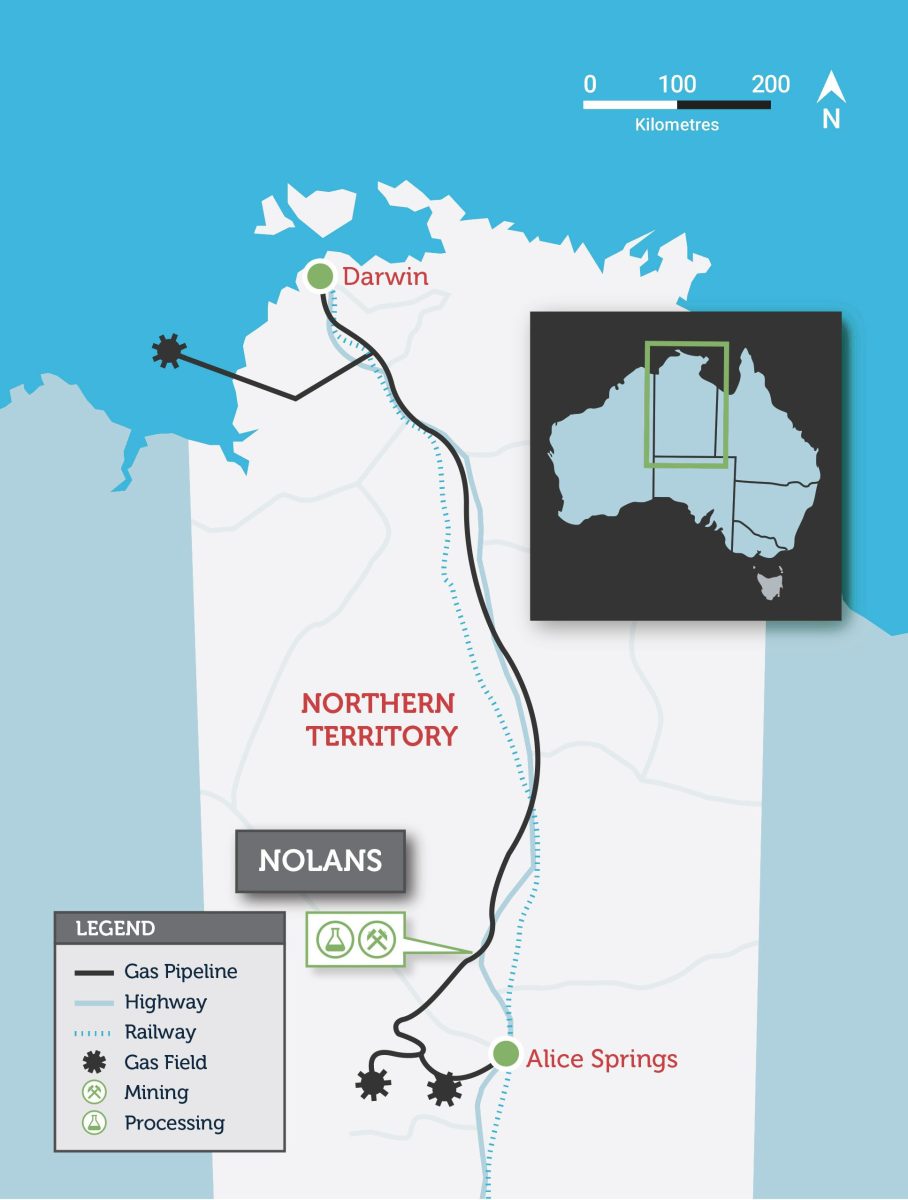
The Nolans project site is 135 kilometres northwest of Alice Springs and 10 kilometres west of Aileron roadhouse and Alyuen community. Photo: Arafura Resources Limited.
The project began in June 2020 when Arafura secured a Native Title Agreement covering all parts of the site. In the following month it was granted the project’s Mineral Leases by the Territory Government, which secured its right to own and operate the Nolans asset for 25 years.
Arafura said the project has been subject to both the Territory and Commonwealth’s “rigorous and lengthy” environmental assessment processes.
The Commonwealth’s boost to the project comes off the back of a major drop in the global prices of critical minerals. By the end of January, lithium’s price had within a year dropped by over 80 per cent.
Although its not unusual for the rapidly fluctuating market, which often sees forecasts of huge demand lead to sudden price hikes that kick up production and exploration. The latest slump due to supply outgrowing demand has been inflated by Indonesia’s ban on nickel ore exports in 2020.
Our northern neighbour’s decision led to huge investment into its domestic refineries, which have low labour and environmental standards in comparison to Australia. As a result of their cheaper operational costs, Indonesia’s less expensive nickel has pushed local producers to drop their standards in order to compete with competitors in the region.
Last month Ms King said she would add nickel to the critical minerals list, so it could provide its miners with support through access to a $4 billion fund.


